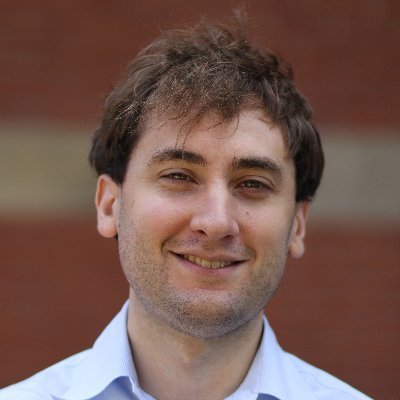February 2024: Dr. Andrew Stokes (BU SPH)
 Andrew C. Stokes, PhD is a demographer and sociologist with expertise in population health, aging, and mortality. Dr. Stokes received his B.A. in Environmental Studies from Bates College, M.A. in Demography from the University of Pennsylvania, and PhD in Demography and Sociology from the University of Pennsylvania. Prior to his doctoral studies, he completed post-bachelor fellowships at the Harvard Initiative for Global Health in Cambridge, MA, and the Institute for Health Metrics and Evaluation in Seattle, WA. Through his research and dissemination efforts, he strives to reveal the social and structural factors that influence health across the life course, inform public health policies that center health equity, and contribute to evidence-based reforms of public health and health care systems. His research portfolio includes research on (1) the determinants of long-term mortality and life expectancy trends, (2) international comparisons of health and mortality, (3) chronic disease, pain, and disability across the life course, and (4) the non-communicable disease burden and management in low- and middle-income countries. His methodological interests include spatial-temporal analysis, quasi-experimental methods, and demographic and computational modeling. His peer reviewed research includes articles in PLOS Medicine and Science Advances, his media collaborations include a piece in Missouri Independent and USA Today, and he has numerous published commentaries such as a recent news piece in The Hill and The Conversation. Check out Stokes’ data dashboard on the monthly excess mortality across counties in the United States during the COVID-19 pandemic between 2020-2022 here. Learn more about Professor Stokes in his full interview below.
Andrew C. Stokes, PhD is a demographer and sociologist with expertise in population health, aging, and mortality. Dr. Stokes received his B.A. in Environmental Studies from Bates College, M.A. in Demography from the University of Pennsylvania, and PhD in Demography and Sociology from the University of Pennsylvania. Prior to his doctoral studies, he completed post-bachelor fellowships at the Harvard Initiative for Global Health in Cambridge, MA, and the Institute for Health Metrics and Evaluation in Seattle, WA. Through his research and dissemination efforts, he strives to reveal the social and structural factors that influence health across the life course, inform public health policies that center health equity, and contribute to evidence-based reforms of public health and health care systems. His research portfolio includes research on (1) the determinants of long-term mortality and life expectancy trends, (2) international comparisons of health and mortality, (3) chronic disease, pain, and disability across the life course, and (4) the non-communicable disease burden and management in low- and middle-income countries. His methodological interests include spatial-temporal analysis, quasi-experimental methods, and demographic and computational modeling. His peer reviewed research includes articles in PLOS Medicine and Science Advances, his media collaborations include a piece in Missouri Independent and USA Today, and he has numerous published commentaries such as a recent news piece in The Hill and The Conversation. Check out Stokes’ data dashboard on the monthly excess mortality across counties in the United States during the COVID-19 pandemic between 2020-2022 here. Learn more about Professor Stokes in his full interview below.
What made you decide to be a social scientist/ why does social science matter to you?
I was inspired to pursue training in the social sciences after seeing what a profound impact the field can have on understanding and addressing health and social inequalities in our society. I greatly appreciate the way social science mixes theory with careful empirical work to draw meaning from data.
Can you tell us about a recent research project that you’re excited about?
Since the early days of the pandemic, I have participated in a project focused on quantifying uncounted Covid-19 deaths in local communities across the United States. Through peer-reviewed research, media collaborations, and public data dashboards, the project seeks to reveal the hidden death toll of the pandemic and inform public health policies to improve pandemic preparedness and response. We were recently awarded a grant to continue this work through a research, policy, and art advocacy collaboration.
What is the best piece of professional advice you ever received?
The best professional advice I’ve received is the importance of interdisciplinary collaboration. While there is so much we can do with our toolkit, there are also limits, and I’ve greatly valued the opportunity to collaborate with individuals in other fields within the quantitative social sciences as well as with scholars outside of the social sciences, including experts in the arts, humanities, journalism, and advocacy.
What is your favorite course you’ve taught at BU?
My favorite course I’ve taught at BU has been “Essentials of Population Health Research.” The course analyzes some of the leading population health challenges of our time and the factors that shape population health trends and disparities across the life course. We also cover methods and tools from the demographic and population health sciences to help students develop a practical toolkit for carrying out independent research.
Tell us a surprising fact about yourself.
I grew up in the historic town of Gettysburg, PA. I spent the 4th grade living and attending school in St. Andrews, Scotland where I enjoyed playing on the school rugby team and trying new foods like baked beans on toast and haggis.